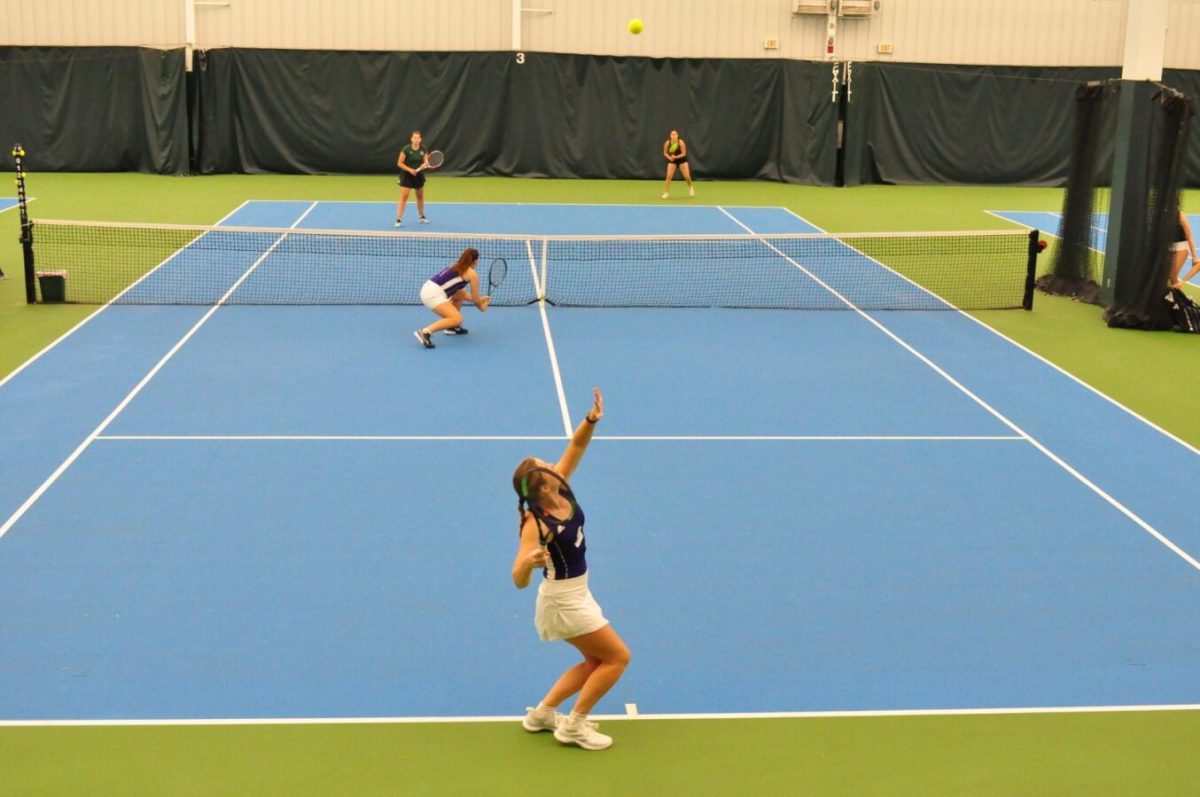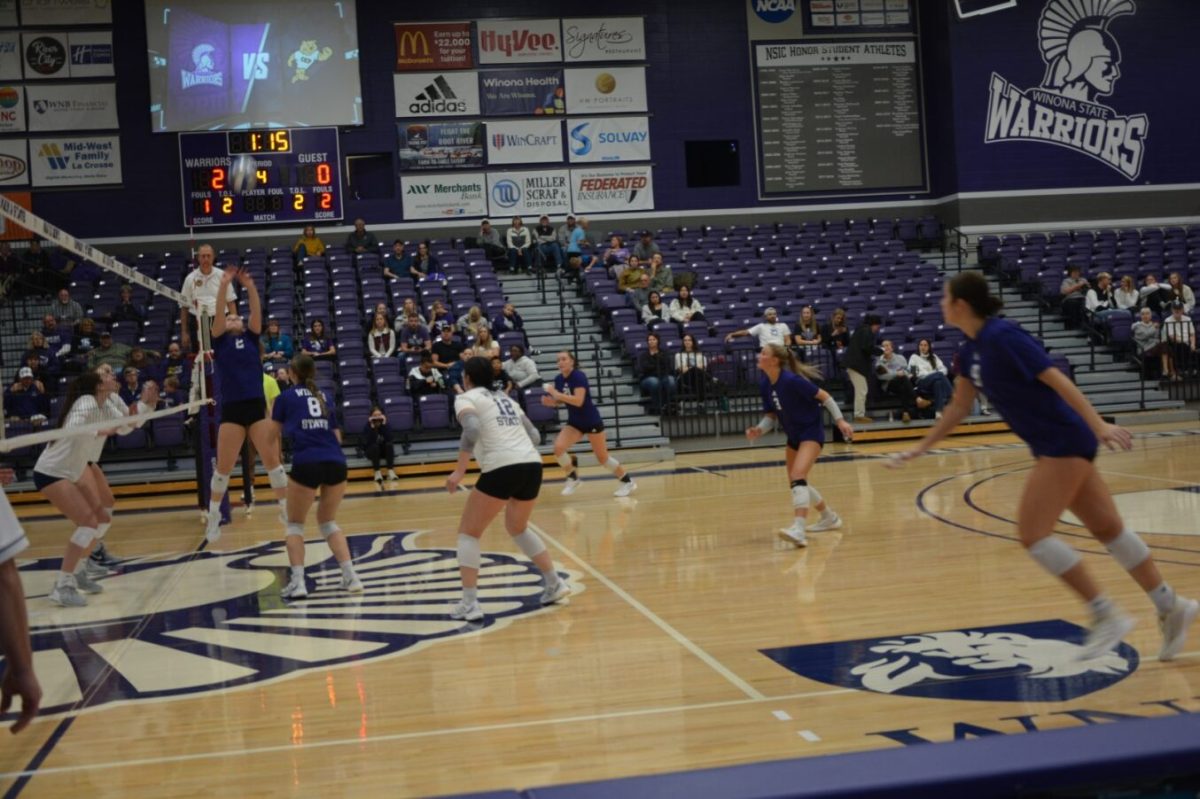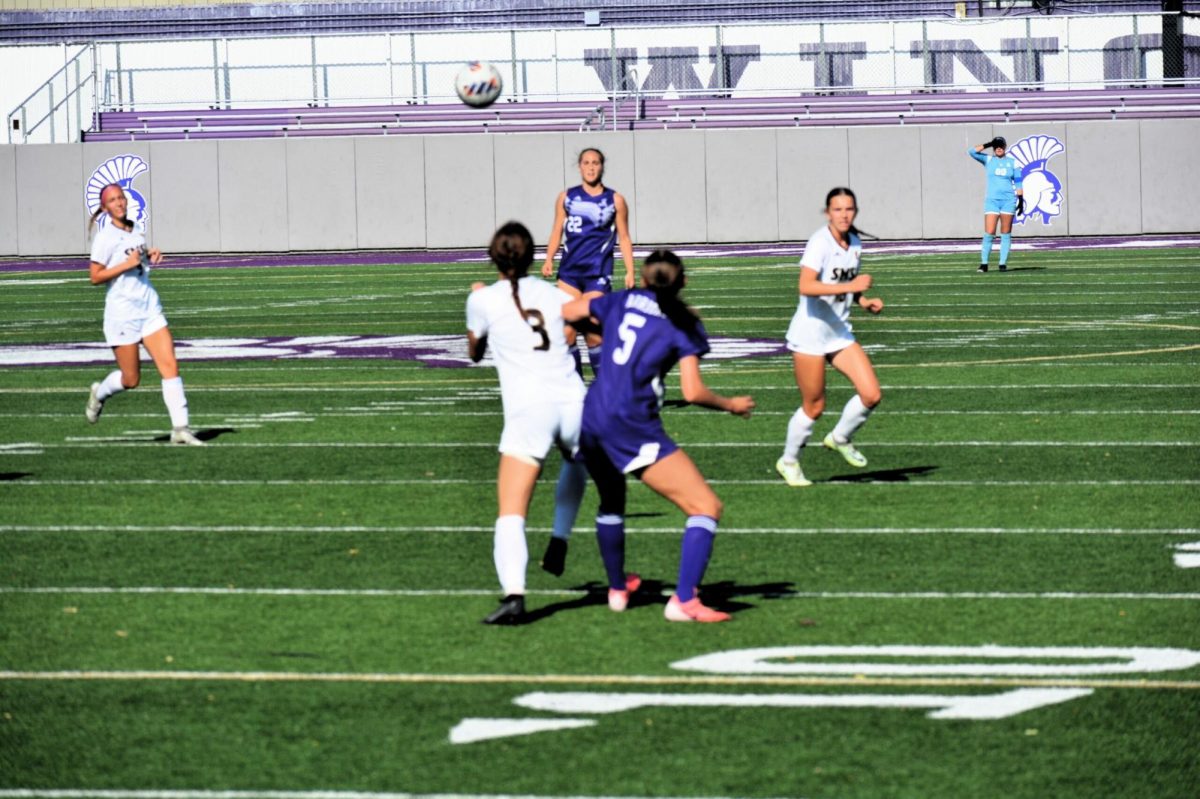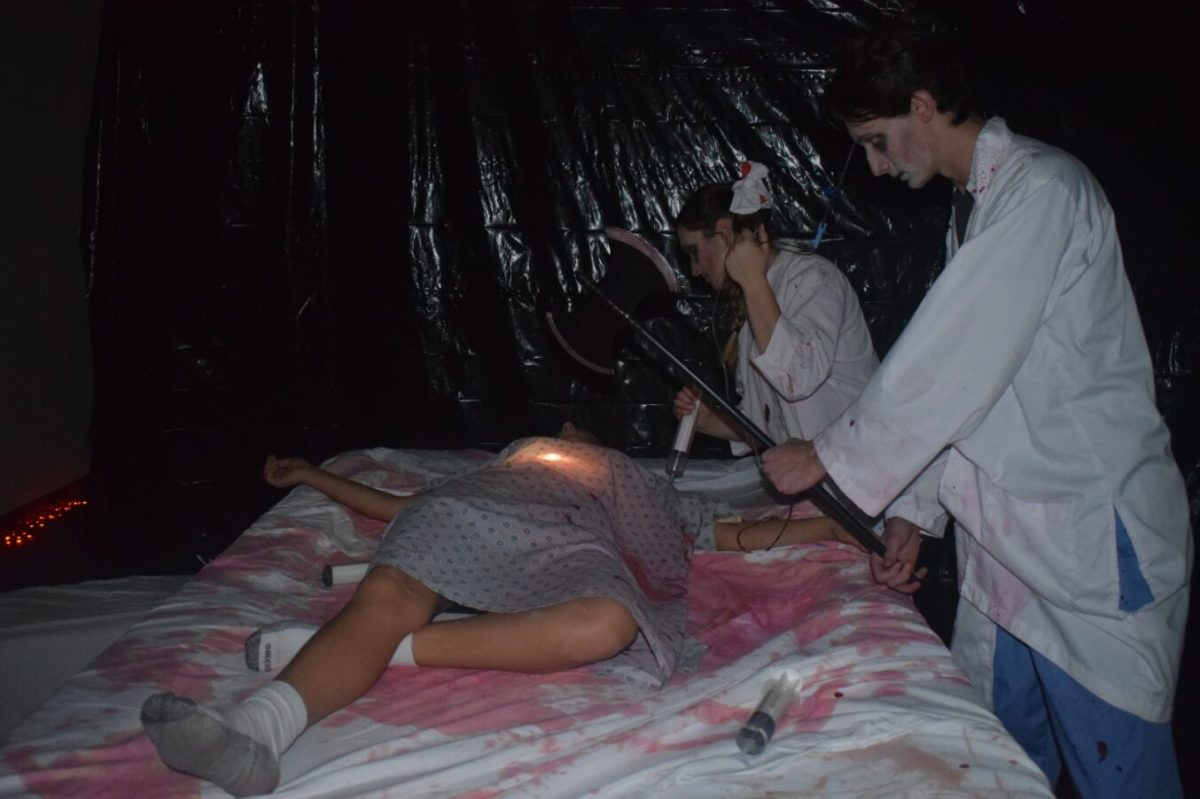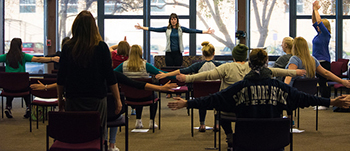
Michaela Gaffke / Winonan
Trauma-sensitive yoga is not your typical yoga. It does not call for tight leggings or yoga mats. There is no need to contort yourself into uncomfortable poses or worry about if you are even able to twist and turn your body into different forms. Trauma-sensitive yoga is all about the choice to do what you are comfortable with. It is a form of healing for people who have experienced trauma.
“You have the option to find a soft gaze on the floor or maybe close your eyes; your choice. You are welcome to bring attention to your breath, just noticing that you are breathing,” Sarah Super, trauma-sensitive yoga instructor, said to the group of students gathered in the Tau Center last week for her session.
She sat at the front of the room while the students sat apart from each other. Some mirrored her movements, while others made the choice to do similar but different motions.
Super is a certified trauma-sensitive yoga instructor from Minnesota and a “Break the Silence” activist, which is a movement for survivors of sexual violence.
Trauma-sensitive yoga is about movement, not just yoga, it is about the individual’s own choice, feeling their body move at their own pace, according to Super.
Time does not heal trauma, and neither does self-care, Super said.
“People live through many different situations, but can have a similar outcome to these experiences, which are feelings of disempowerment and disconnection,” Super said. “Healing from trauma happens with empowerment through choice, and reconnection meaning trust, predictability and solidarity.”
This trauma-sensitive yoga session was the first on campus.
There are currently efforts between the RE Initiative and Health and Wellness to bring trauma-sensitive yoga to campus once a month.
Women’s, gender and sexuality studies professor Tamara Berg stated Winona State commits to support gender based violence survivors.
“There is a weekly support group for survivors to learn coping skills, have a safe space for recovery, and to connect with other survivors, but a trauma-sensitive yoga class would be another way we can offer support,” Berg said.
This is yoga anyone can participate in, not only trauma survivors but also for differently abled people who cannot do standard yoga, Berg said.
“If trauma-sensitive yoga gains popularity, it could even be offered every week,” Berg said.
-By Michaela Gaffke







